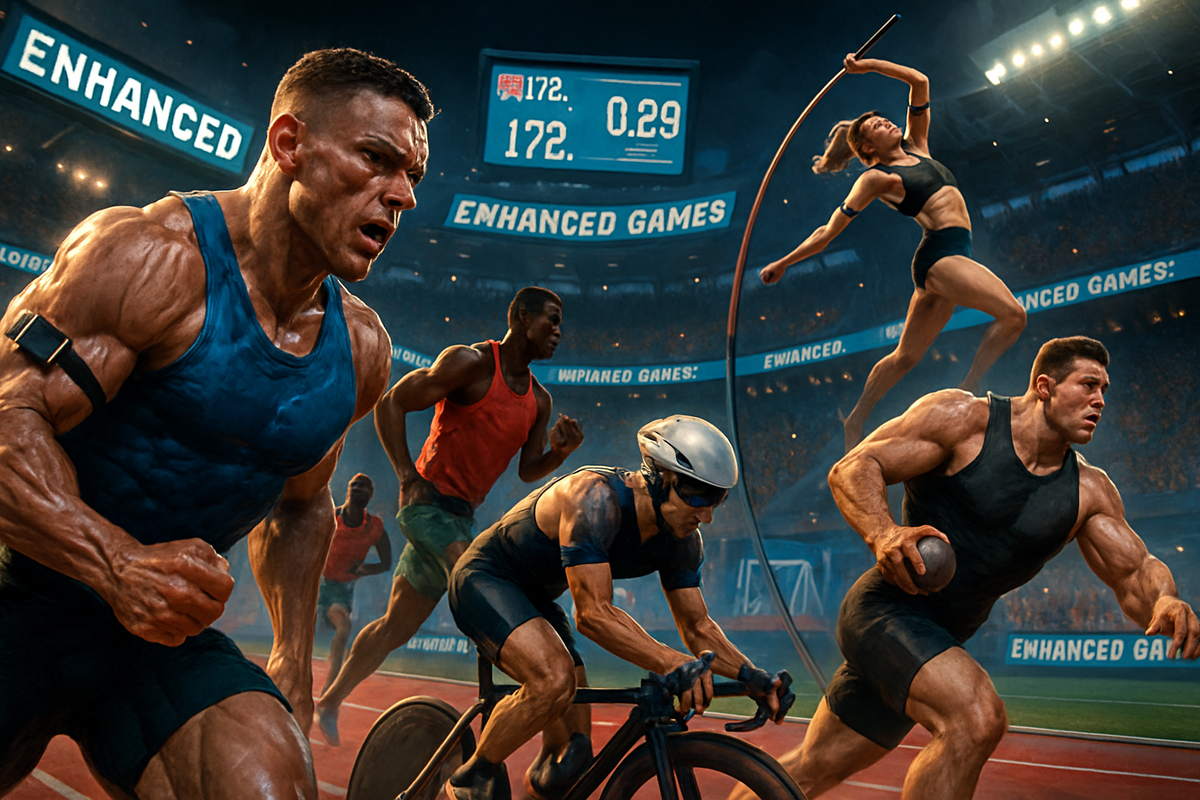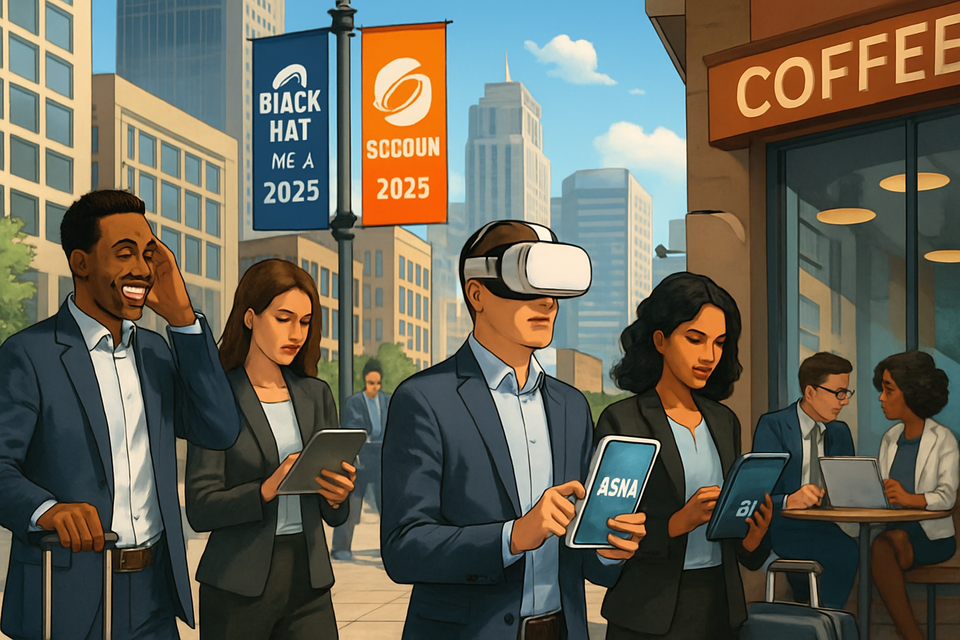Enhanced Games: The 'Steroid Olympics' That Could Change Sports Forever
Welcome to a thrilling new era as the Enhanced Games challenge the boundaries of sports with performance-enhancing drugs, tech, and billion-dollar controversies. Are these games the future of athletics or a dystopian spectacle? Find out now.

Welcome to the Age of Enhanced Athletics
The year is 2025. Somewhere between the Olympic torch and a pharmaceutical laboratory, a new sporting phenomenon is flexing its controversial muscles: The Enhanced Games. Dubbed by fans and critics alike as the 'Steroid Olympics,' this event is rewriting the rules of human competition—and making the old debates about fairness, health, and the limits of human potential look positively quaint.
“Athletes are adults ... and they have a right to do with their body what they wish – my body, my choice; your body, your choice.”
—Aron D’Souza, Enhanced Games founder
But is this a revolution in personal freedom and athletic achievement—or a dangerous, dystopian spectacle? Let’s dive into the business, the science, the stories, and the billion-dollar biohacking boom swirling around this wild new experiment in sport.
The Enhanced Games: What, Where, and Who?
The Enhanced Games are a planned multi-sport event (first scheduled for May 2026 in Las Vegas) where athletes are explicitly permitted to use performance-enhancing drugs—no drug tests, no shame, just science, sweat, and spectacle. The brainchild of Australian entrepreneur Aron D’Souza, the Games are pitched as a radical answer to what he calls a corrupt, outdated Olympic system.
- All substances must be FDA-approved. No heroin or cocaine (sorry, party animals), but steroids, growth hormones, and advanced supplements? Step right up.
- Wearable tech, prosthetics, and new shoe technologies are all fair game—making this not just a pharmaceutical experiment, but a laboratory for human-machine integration.
- Athletes compete based on chromosomal sex, a move that has drawn its own firestorm of debate.
Far from a fringe stunt, the Enhanced Games are backed by major venture capitalists—including Peter Thiel and Donald Trump Jr.—and have attracted Olympic medalists like James Magnussen (who famously promised to "juice to the gills" for a $1 million world record attempt). The event is expected to feature swimming, track and field, and weightlifting, with more sports (and controversy) sure to follow.
The Science and Business of Human Enhancement
Why are so many investors, athletes, and techies suddenly obsessed with enhanced performance? Three words: profit, progress, and spectacle.
The Billion-Dollar Biohacking Boom
- Supplements and Smart Drugs: The global market for fitness supplements, nootropics, and hormone boosters is projected to top $60 billion by 2026. The Enhanced Games are a live-action billboard for this lucrative industry.
- Wearable Fitness Tech: From WHOOP bands to next-gen Fitbits, real-time data is becoming as crucial as creatine. Athletes (and fans) track every heartbeat, hormone, and hydration level, blurring the boundaries between sport and science.
- Streaming and Betting: With the rise of online sports betting and global streaming platforms, the Enhanced Games could become a cash cow for media partners and oddsmakers alike.
Supplements, Science, and Superhumans
Performance-enhancing drugs (PEDs) in the Enhanced Games aren’t just about getting swole—they’re about exploring the frontiers of human potential:
- Testosterone, BPC-157, CJC-1295, Ipamorelin, Thymosin: These are just a few of the substances athletes have publicly embraced. Many are used off-label for muscle growth, recovery, or even cognitive enhancement.
- Medical Oversight? Organizers promise clinical screenings, but sports medicine experts warn about the risk of heart attacks, hormonal chaos, and long-term unknowns.
- Prosthetics & AI: The Games also allow advanced prosthetics and AI-driven training tools, raising philosophical questions about where the human ends and the machine begins.
Inside the Arena: Athlete Stories and Spectacle
If you thought the Olympics were dramatic, wait until you meet the Enhanced Games’ cast of characters:
- James Magnussen, Australian swimmer, is chasing the 50m freestyle world record with a cocktail of legal PEDs, hoping to claim the million-dollar prize. His mantra? "This isn’t for kids—this is about pushing the limits of adult potential."
- Kristian Gkolomeev, Greek swimmer, unofficially broke the long-course 50m freestyle world record in a private Enhanced Games event, clocking 20.89 seconds.
- Hundreds of 'Sleeper Athletes' are said to be training in secret, waiting to debut their enhanced physiques and performances on the world stage.
“No one within athletics takes the Enhanced Games seriously.”
—Sebastian Coe, World Athletics President
The Ethics: Fairness, Freedom, and the Shadow of Dystopia
The Enhanced Games have unleashed a tidal wave of ethical debate. Here’s what’s at stake:
Arguments For the Enhanced Games
- Autonomy: Adults should be free to make choices about their own bodies.
- Transparency: Legalizing enhancement could make the playing field more honest, ending the cat-and-mouse game of doping scandals.
- Innovation: Pushing human limits could lead to medical and technological breakthroughs benefiting all of society.
Arguments Against the Enhanced Games
- Health Risks: Encouraging PED use could lead to a public health disaster, especially if young athletes are tempted to join the arms race.
- Fairness: Wealthier athletes and nations could afford better enhancements, widening inequalities.
- The Spirit of Sport: Critics argue that removing natural limits makes victory meaningless, turning competition into a pharmaceutical arms race.
Global organizations from the IOC to the World Anti-Doping Agency have condemned the Enhanced Games. But, as always, the market (and the audience) may have the final say.
Why the Enhanced Games Matter: The Future of Human Potential
Whether you see the Enhanced Games as a bold leap or a dangerous slide, one thing is clear: the genie is out of the bottle. The intersection of sports, technology, and human enhancement is now a multi-billion dollar industry, raising urgent questions for athletes, fans, policymakers, and parents everywhere.
- Will the Enhanced Games force the Olympics to evolve?
- Can society handle a world where human limits are optional?
- How do we balance freedom and fairness in the pursuit of greatness?
The debate is just getting started—and it’s one you won’t want to miss.
Join the Conversation—And Stay Ahead of the Curve
Love exploring the wild frontiers of sport, science, and society? Subscribe for free to become a Funaix Insider at Funaix.com and get smart news, sharp analysis, and exclusive perks delivered straight to your inbox. The future of human potential is being written now—don’t just watch it, be part of it.
Published: August 1, 2025.
For more on sports innovation, bioethics, and the next wave of human enhancement, keep reading Funaix—where the future comes to play.




